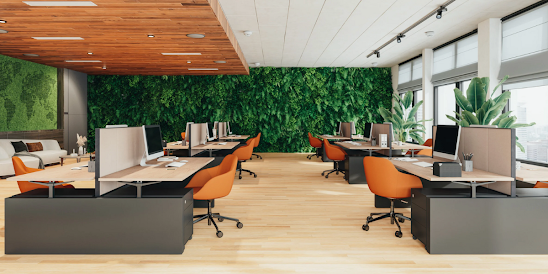Today’s businesses face a dual challenge: adapt to hybrid work while also cutting down on environmental impact. Traditional offices—built for full occupancy—are no longer practical or sustainable. As desks sit unused and energy continues to flow into empty floors, companies are turning to smarter solutions to manage space, save costs, and reduce their ecological footprint.
These tools aren’t just about reserving a place to sit—they’re a gateway to optimizing resources and promoting environmentally friendly practices. A standout in this space is office desk booking system platform, which helps companies align workspace planning with sustainability goals.
Why Traditional Offices Waste Resources
The old model of one desk per employee no longer fits today’s flexible work culture. In many companies, employees now spend half—or even more—of their time working remotely. Yet the physical office often remains set up for 100% attendance, leading to:
Wasted electricity, heating, and cooling
Excess furniture and supplies
Underutilized floors that still require cleaning and maintenance
Unnecessary real estate costs
This inefficiency not only impacts the bottom line—it contributes to the organization’s environmental footprint.
Desk Booking as a Sustainability Strategy
Desk booking systems offer a smart and scalable way to fix this problem. With tools like FloorPlanMapper, businesses can allow employees to reserve desks only when needed, reducing the total number of active workstations at any given time.
Here’s how that drives sustainability:
1. Lower Energy Consumption
Knowing which parts of the office will be in use allows facility managers to adjust lighting, air conditioning, and ventilation accordingly. Unoccupied zones can be powered down, saving energy daily.
2. Right-Sizing the Office
With insights from booking trends, companies can evaluate how much space is truly needed. Downsizing or reconfiguring floor plans becomes easier—and greener—when decisions are data-driven.
3. Less Waste from Office Supplies
When fewer desks are in operation, there’s reduced demand for equipment like monitors, chairs, and paper-based supplies. This curbs unnecessary procurement and limits material waste.
4. More Efficient Cleaning Services
Janitorial teams can focus on areas that were actually used, avoiding over-cleaning and helping conserve cleaning products, water, and energy.
Helping Meet Environmental Goals
Sustainability reporting and green certifications are becoming more important for businesses in all industries. Whether you’re working toward LEED certification, meeting ESG standards, or aligning with internal sustainability KPIs, tracking your environmental footprint matters.
Desk booking software contributes by:
Offering usage reports that show when and how desks are being used
Supporting strategies to limit building occupancy on low-demand days
Reducing the carbon impact of daily operations
Allowing companies to centralize teams in fewer zones or buildings
Using data from FloorPlanMapper’s desk booking system, businesses can demonstrate a measurable reduction in energy use and space waste—key metrics for any sustainability initiative.
Empowering Employees to Think Green
Beyond operational benefits, desk booking platforms can engage employees in sustainability efforts. When team members actively choose when and where they work in the office, they become more conscious of shared resources.
For example:
Employees may choose to come in on the same day as their teams to reduce lighting or HVAC usage across multiple days.
Booking a desk near teammates can reduce the need to move between floors or buildings, saving energy and time.
A simplified floor plan helps staff identify available green zones—areas designated for energy-efficient or low-impact workstations.
By giving workers the ability to make smart booking choices, companies promote a shared commitment to environmental responsibility.
Real Results: Sustainable and Strategic
Consider a company that installs a desk booking system after moving to a hybrid work model. Within three months, they realize they only need 60% of their original desks. They shut down an entire floor, cut energy bills by 30%, and reduce their annual office supply budget—all while maintaining full operational capability.
Conclusion
Sustainability starts with smart decisions—and managing your office space is one of the smartest places to begin. A desk booking system not only improves the way teams use the office—it creates a direct path to a leaner, greener workplace.
If your organization is serious about reducing waste, saving energy, and planning for the future, explore how flexible workspace booking System can help. It’s an investment in efficiency, flexibility, and the planet.












Note: Only a member of this blog may post a comment.